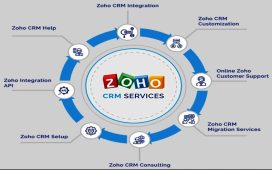Direct specialist referrals through digital channels eliminate traditional barriers that often delay medical care. Patients gain access to specialized healthcare expertise without navigating complex intermediary systems that typically extend waiting periods. This streamlined approach allows faster appointments while reducing administrative overhead for patients and healthcare providers. The nextclinic.com.au system demonstrates how eliminating unnecessary steps helps patients receive timely care for conditions requiring specialized attention while giving physicians more efficient methods to connect patients with appropriate specialists.
Swift connections
Digital systems create immediate links between primary physicians and specialists without delays. Medical information transfers directly between providers through secure digital channels. The specialist referral online process maintains clinical data integrity throughout transmission. This streamlined approach benefits patients with time-sensitive conditions where treatment delays impact outcomes. Reducing waiting periods addresses one of the most common patient complaints within specialized healthcare systems while maintaining appropriate clinical oversight.
Clear records
The direct specialist connection improves clinical information quality by eliminating transcription points where data errors typically occur. When referrals pass through multiple administrative handlers, important medical details sometimes get misinterpreted or incompletely transferred. Digital systems maintain original documentation integrity through end-to-end transmission. Complete medical histories, test results, and treatment attempts reach specialists without information degradation that happens during multiple transfers. This comprehensive data access enables more informed initial consultations and reduces redundant testing when information gaps exist.
Patient gains
The following benefits directly impact patient experience and satisfaction:
- Direct scheduling access eliminates waiting for confirmation calls
- Immediate referral status visibility reduces uncertainty stress
- Electronic form completion replaces repetitive paperwork
- Secure messaging systems allow pre-appointment questions
- Digital document transmission eliminates physical paperwork handling
- Automated reminders reduce missed appointments
- Location mapping and preparation instructions improve first-visit experiences
These convenience elements address practical barriers that sometimes prevent patients from completing recommended specialist consultations. The process simplification makes appropriate specialized care more accessible to patients with limited time availability or complex schedules.
Practice efficiency
These operational improvements optimize specialist practice workflows:
- Reduced administrative staffing requirements lower operational costs
- More complete pre-appointment information improves scheduling efficiency
- Appropriate case screening ensures specialist time focuses on relevant cases
- Direct primary physician communication channels improve care coordination
- Integrated calendar systems prevent double-booking and scheduling errors
- Electronic referral tracking eliminates lost patient transfers
- Practice pattern data helps optimize speciality clinic operations
These operational improvements allow specialist practices to concentrate resources on clinical care delivery rather than administrative processes. The efficiency gains often translate into increased appointment availability, reducing patient waiting times.
Seamless teamwork
Direct referral systems establish clearer communication channels between primary care physicians and specialists that extend beyond initial patient transfers. These persistent connections facilitate ongoing consultation about treatment progress and adjustment needs without requiring additional formal referrals. The resulting collaborative care environment ensures patients receive coordinated treatment approaches rather than disconnected recommendations from different providers. This integration particularly benefits patients with complex conditions requiring multiple specialist inputs alongside primary care management.
The security frameworks balance appropriate information access with privacy protections to prevent unauthorized data exposure. This careful implementation ensures patient confidentiality remains protected despite the more efficient information transfer processes. The comprehensive security approach addresses one of the primary concerns about streamlined digital referral systems by providing stronger protection than traditional paper-based methods that often lack tracking capabilities or access limitations once documents leave secured environments.















